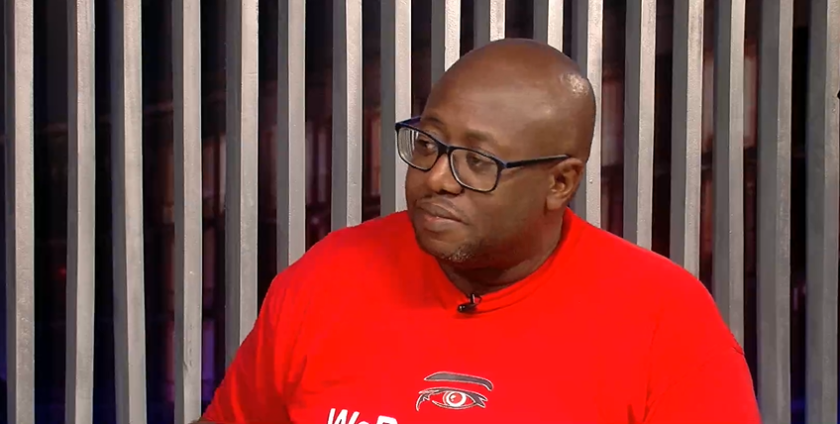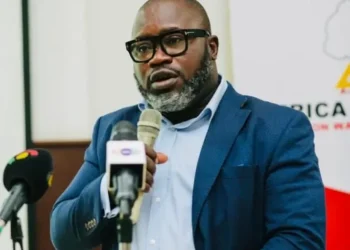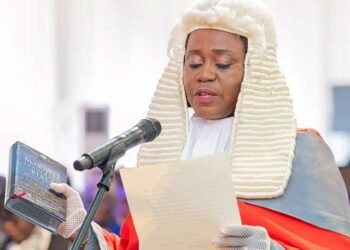The practice of offering material incentives or financial rewards to voters in exchange for their support, popularly referred to as vote buying has been a great concern in Ghana’s electoral processes, particularly during internal political party elections.
The majority of incidences of vote-buying and vote-selling occur in Ghana mainly during internal party elections.
While the perpetrators of the act have frequently asserted that these funds are not intended to influence voters but rather to cover the expenses of transportation and meals for the delegates, evidence suggests a clear intention of voter inducement.
In the most recent parliamentary and presidential primaries of the two major political parties in the country, particularly within the ruling New Patriotic Party, the practice has gotten severe as some aspirants were captured by media cameras distributing monies to delegates.
The Chief Executive of the National Entrepreneurship and Innovation Programme (NEIP), Kofi Ofosu Nkansah, has reportedly been arrested by the Office of the Special Prosecutor, which is already looking into some of these allegations against some public officials.
The allegations involving Mr Nkansah according to the Office of the Special Prosecutor include giving money to delegates before the New Patriotic Party’s Parliamentary primaries in constituencies where the party currently has sitting Members of Parliament.
This phenomenon undoubtedly poses severe dangers to the democratic fabric of the country. Among other things, the practice of vote buying undermines the principles of a free and fair democratic process by replacing the idea of citizens making informed choices based on their beliefs with a transactional approach.
Again, while internal party elections are crucial for the selection of candidates who best represent the ideals of political parties, vote buying can weaken parties by allowing candidates with financial means, rather than merit or popularity, to secure positions, potentially leading to a decline in the quality of leadership.
For most critics of the phenomenon, their greatest fear is that the culture of vote buying if not properly checked would lead to the normalisation of corrupt practices within the country’s political system.
According to most of them, when voters accept monetary incentives from political actors it perpetuates a culture where financial inducements become an accepted part of politics.
Dr. Kojo Pumpuni Asante, Director of Programs and Policy Engagement at the Centre for Democratic Development-Ghana (CDD-Ghana), has voiced serious concerns regarding the pervasive practice of vote-buying and selling in Ghanaian politics.
The CDD Fellow expressed concerns about how the canker is affecting Ghana’s young democracy and urged the government to take the issue more seriously by imposing harsh penalties on both the dealers and the purchasers of the votes.
“I think that the sooner we jail both the sellers and the buyers of votes the better it will be for us. Everybody can tell now that people just do it with impunity. They do it in the open, there are a lot of willing takers, people willing to sell their votes, and I think if we don’t stop this behaviour we’re continuously trying to de-legitimize the democratic process.
“When something is tainted and corrupted, it’s obvious. So, we have to attack it with all the aggression that we need. I am hoping that at least somebody gets jailed; not just the political actors but also the people who are receiving the money; because if that doesn’t happen then people will still think that there’s no accountability; you can do it with impunity and get away”
Dr Pumpuni Asante

Dr Pumpuni Asante while acknowledging the Office of the Special Prosecutor’s efforts to put an end to the practice expressed concerns about the obstacles the organization must overcome to handle cases of such nature.
According to the CDD Fellow the practice if normalized could destroy Ghana’s democracy.
It is without doubt that addressing the practice and gradual institutionalization of vote buying in Ghana’s electoral processes would require a collective effort from political stakeholders, civil society, and citizens to promote a political culture based on integrity, transparency, and the genuine will of the Ghanaian people.
READ ALSO: SALL Case: High Court Dismisses Amewu’s Request To Suspend Ruling























